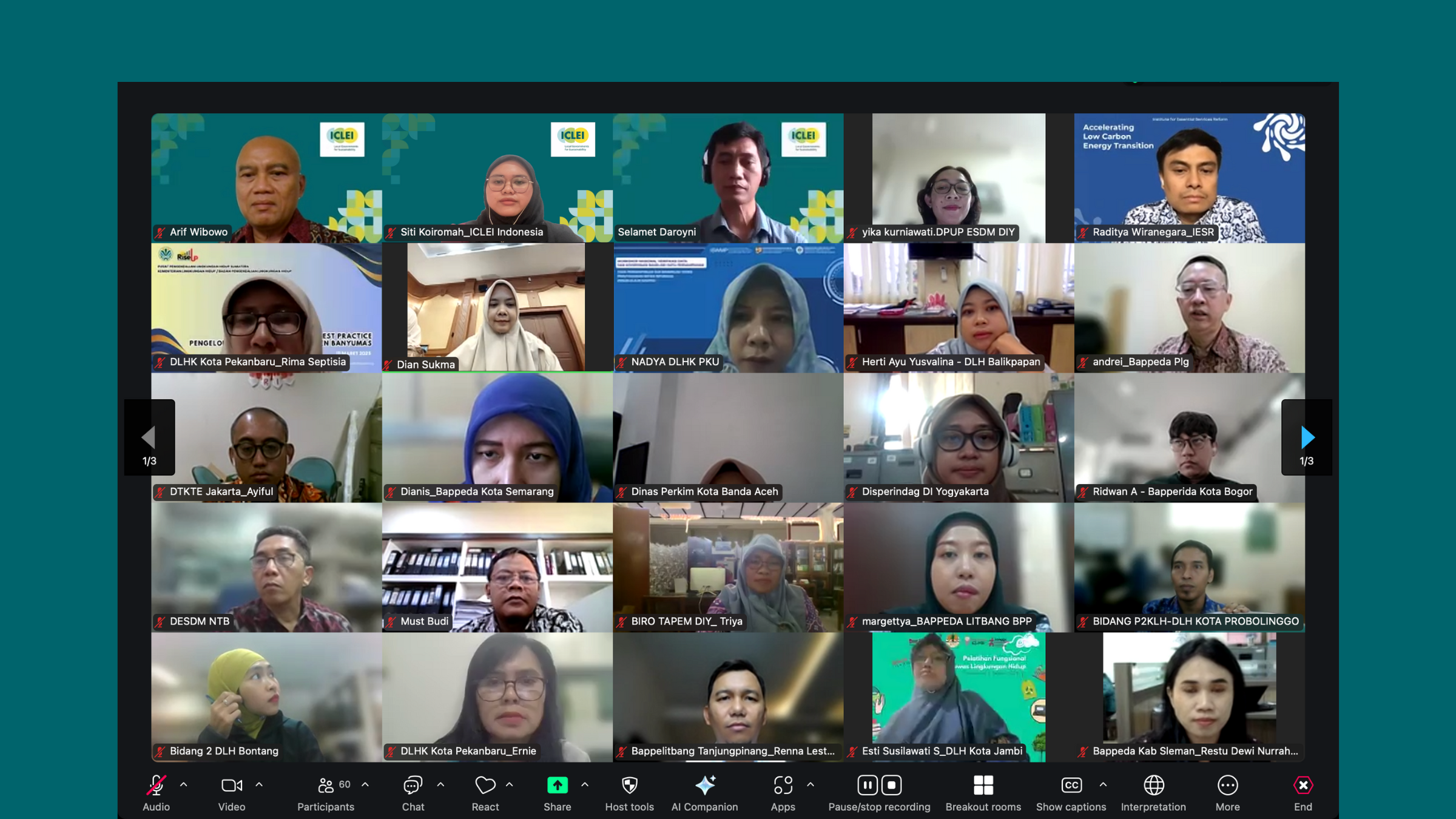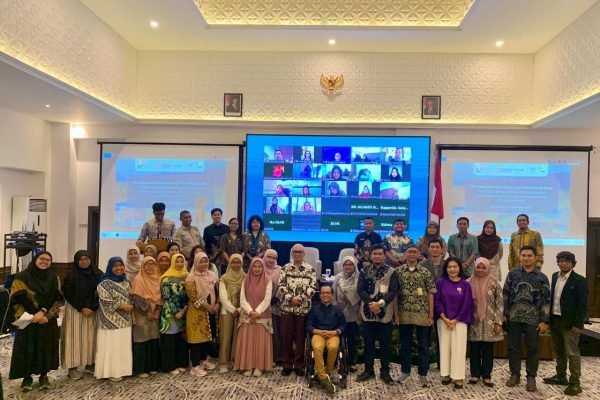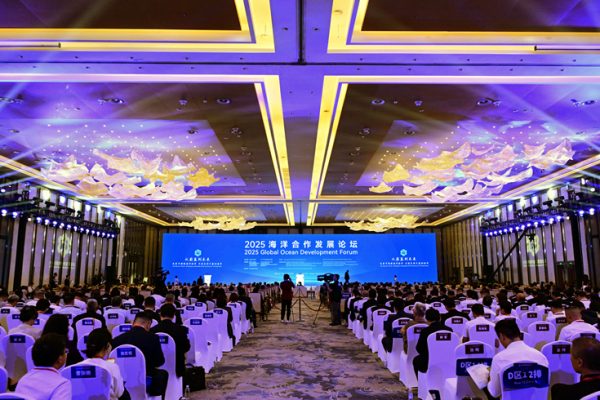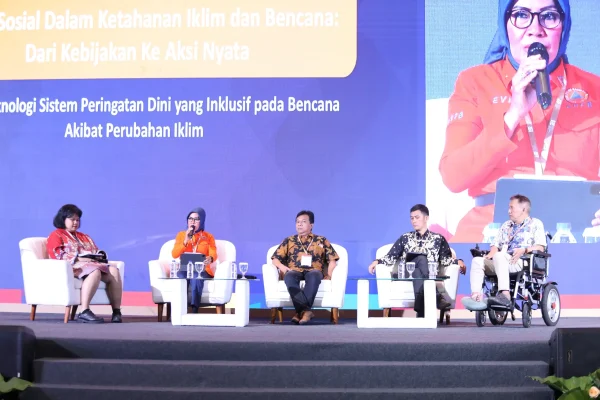Stakeholders and local government agencies from over 15 cities and regencies participated in a renewable energy capacity building session under RENEW-SEA Program.
Indonesia’s energy transition remains crucial for supporting the country’s Enhanced Nationally Determined Contributions (E-NDCs). With a target to reduce greenhouse gas emissions by 912 million tons of CO₂ by 2030, accelerating the sustainable energy transition is key to achieving its net-zero emissions target.
Aligned with this national goal, over 70 local government participants from more than 15 cities and regencies across Indonesia participated in an online capacity building session themed Introduction to Renewable Energy and Energy Efficiency Technologies on March 20, 2025. Hosted virtually by ICLEI Indonesia under the RENEW Southeast Asia project (RENEW-SEA), this session seeks to raise awareness and strengthen local capacity to drive local energy transitions and support Indonesia’s climate goal.
The RENEW-SEA program on “Mobilizing and Empowering Local Governments in Southeast Asia for a Sustainable Energy Transition,” is implemented in Indonesia through a 2024 Memorandum of Understanding (MoU) with the Special Region of Yogyakarta Province under the Climate Change Mitigation Development program.
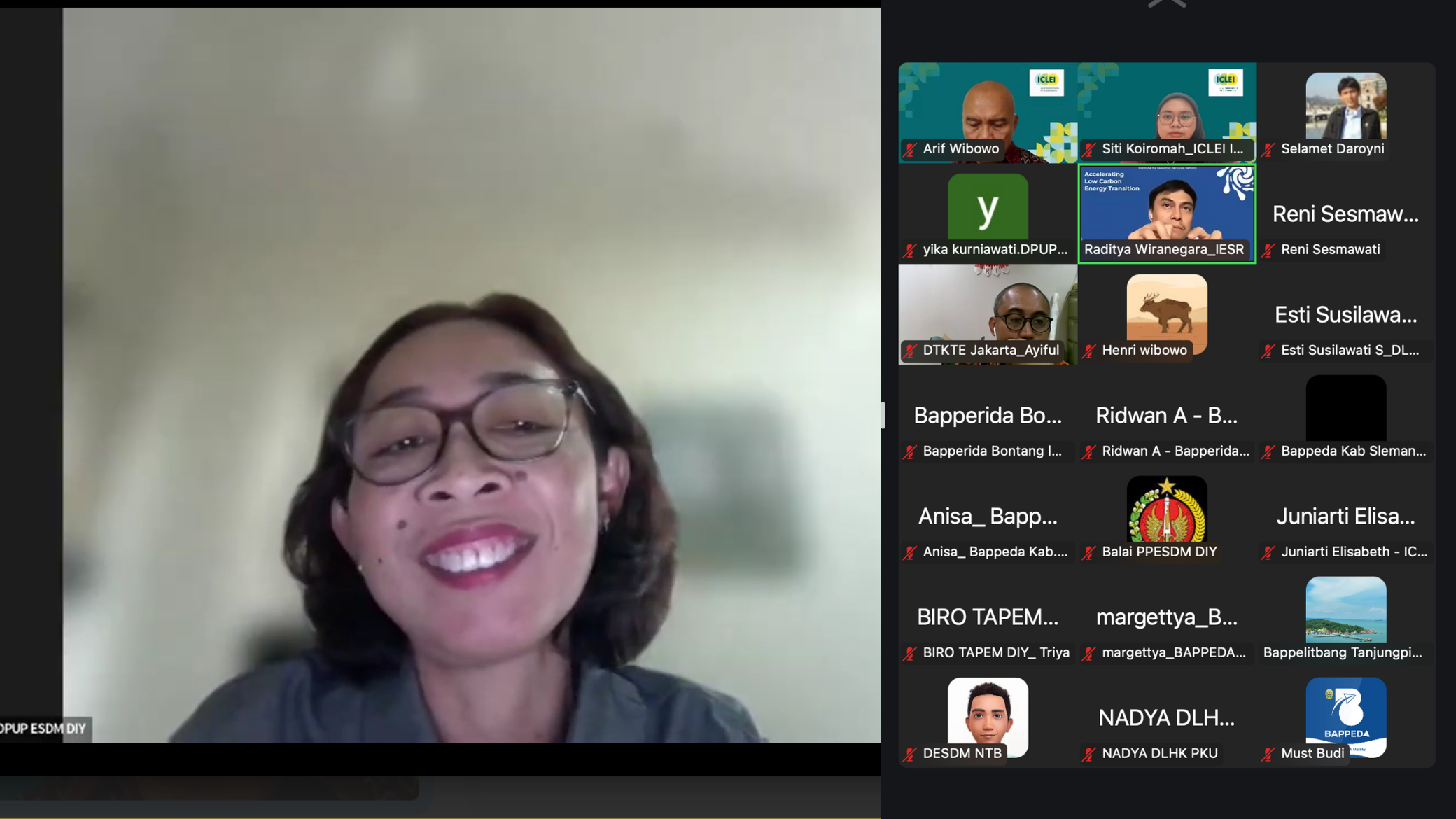
Ms. Yustina Ika Kurniawati, Head of the Energy Division at the Yogyakarta Energy and Mineral Resources Office (PUPESDM), delivers opening remarks to welcome participants.
In her opening remarks, Ms. Yustina Ika Kurniawati, Head of the Energy Division at the Yogyakarta Energy and Mineral Resources Office (PUPESDM), highlighted the strategic issues related to electricity in the Regional Long-Term Development Plan (RPJPD 2024–2045) focusing on four main area; including the share of renewable energy in the regional energy mix, electricity consumption per capita, energy intensity, and the electricity access ratio.
She further expressed her gratitude for the event saying “We must collaborate to support the energy transition. Through this initiative, we aim to have discussions and collaborate on innovations, challenges, and opportunities in the implementation of energy transition (ET) and energy efficiency (EE).”
Selamet Daroyni, ICLEI Indonesia Senior Project Officer, welcomed local government participants from various cities, pointing out that the event aimed to introduce energy initiatives in Yogyakarta and create opportunities for other regions to join the Energy Compact Signatories initiative and become part of the 100% Renewable Energy (100% RE) networks.
Raditya Wiranegara, Research Manager at IESR—a think tank focused on energy and the environment—served as an energy expert, delivering a comprehensive overview of renewable energy technologies and energy efficiency in Indonesia. The session included an outlook of global and Indonesian trends in renewable energy utilization, as well as the types of renewable energy and their potential in Indonesia.
Open forum sparked insightful discussions around local efforts, challenges, and future energy trends in Indonesia
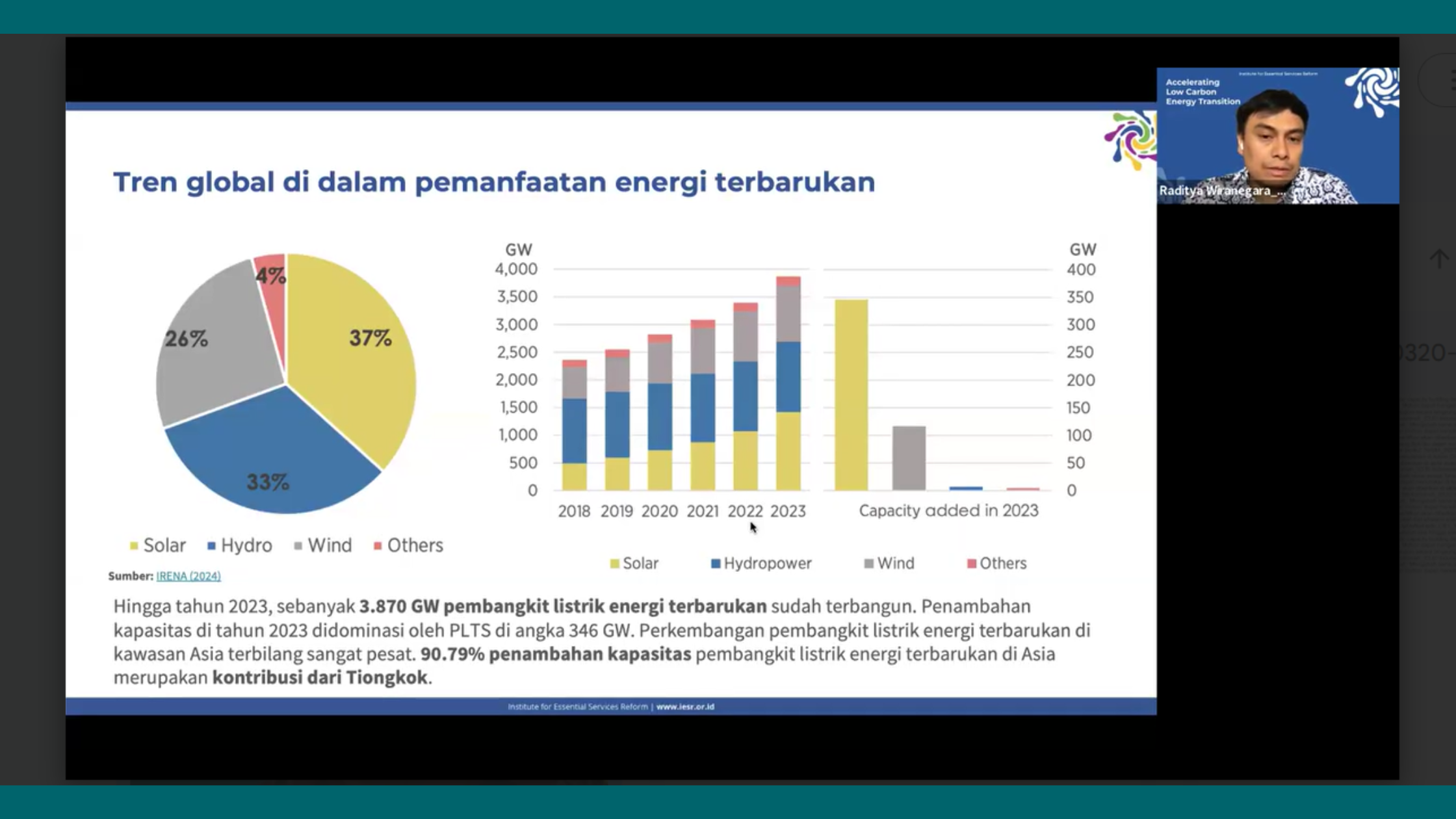
Raditya Wiranegara, Research Manager at IESR, explains global and Indonesian trends in renewable energy utilization during the presentation session.
Evi Yulianti from the Tanjungpinang Environmental Agency (DLH) raised a question on renewable energy potential for island regions, particularly tidal power. Raditya Wiranegara, IESR energy expert, explained that tidal energy remains a viable option for land with limited areas, despite being a relatively new technology. In addition, floating solar PV and offshore wind power were proposed as promising alternative solutions.
The Energy and Mineral Resources Division of PUPESDM shared its significant progress in solar PV (PLTS) development, along with biomass power plant from sugarcane bagasse at PT Madubaru, and 10 biogas units, fruit waste biogas, solar-wind hybrid systems, and micro-hydro power plants (PLTMH) in Kulon Progo.
Addressing participants’ feedback, the session also touched on key insights on Indonesia’s renewable energy (RE) supply chains, noting the country’s significant raw material potential, including silica sand, copper, nickel, and cobalt. However, building a sustainable ecosystem around these resources remains a challenge. The discussion also highlighted that rooftop solar is an ideal solution for densely populated urban areas.
While noting that solar PV is projected to remain a leading energy option from a techno-economic standpoint, Raditya pointed out that the lower cost of imported modules compared to local products signals the need for the national government strategy to boost the competitiveness of the domestic solar industry. According to the 2025 National Electricity General Plan (RUKN), of the projected 443 GW of power generation capacity by 2060, 108.7 GW (24.6%) will come from solar PV, highlighting its central role in Indonesia’s energy future.
Progress stems from consecutive knowledge sharing and capacity building at the local level
Drawing from survey feedback, participants acknowledged the critical role of renewable energy in supporting Indonesia’s 2060 net zero target and recognized local governments as key actors, despite constraints in technical capacity and resources. Capacity-building efforts were seen as valuable for expanding knowledge, identifying practical opportunities, and fostering collaboration.
While challenges remain, participants expect the need for developing local expertise, the future of fossil-free alternatives that still require technological advancement, and the importance of tailored, region-specific strategies to ensure effective implementation.
Wrapping up the discussion, Arif Wibowo, Country Manager at ICLEI Indonesia, emphasized that collaboration among various stakeholders is crucial to support the energy transition agenda at the local level.

